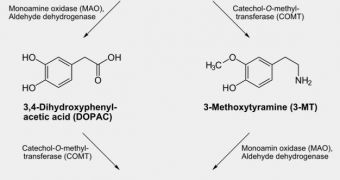In many of today's jobs, people are required to make judgments of value in the heat of the moment, by weighing the pros and cons of a situation as fast as possible, and then deciding on a course of action that they need to communicate to others. When this is done by team leaders and managers, their decisions have an increased significance, which in turn increases the pressure their brains feel when needing to decide something fast. All the potential consequences that their behaviors might entail also need to be analyzed, PhysOrg reports, which makes the entire process even more difficult.
Scientists from the Max Planck Institute for Human Development, in Germany, have now discovered a new enzyme variant that is believed to play a very important part in promoting fast and flexible decision-making behavior, by controlling the learning phase associated with this phenomenon. The COMT (cathecolamin-O-methyltransferase) enzyme acts by breaking down the neurotransmitter dopamine, which has been proven to play an important role in positive reinforcement.
That is to say, if the brain perceives a certain action or decision as good, then dopamine is released in larger quantities. The cortex interprets these increased concentrations as a reward for its behavior, and will therefore seek to replicate the same behavior in the future – essentially, this is the basis for learning. In each brain, there are two forms of COMT: COMT Met and COMT Val. The Planck researchers were curious to determine which of the two variants was the most useful to learning and decision-making, therefore they analyzed a number of test subjects that had either of the two.
The team determined that the CMOT Val genotype was the most effective of the two, in terms of making their owners able to learn faster, and also to be more flexible when it came to making decisions under fire. Some 26 volunteers, featuring both variants of the enzyme were analyzed, and all were offered a monetary reward if they played along in a few reward-based decision tests. The new research also seems to point out the fact that dopamine plays an important part in helping people remember past experiences, so that they can be used for future ones.

 14 DAY TRIAL //
14 DAY TRIAL //